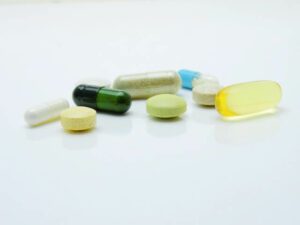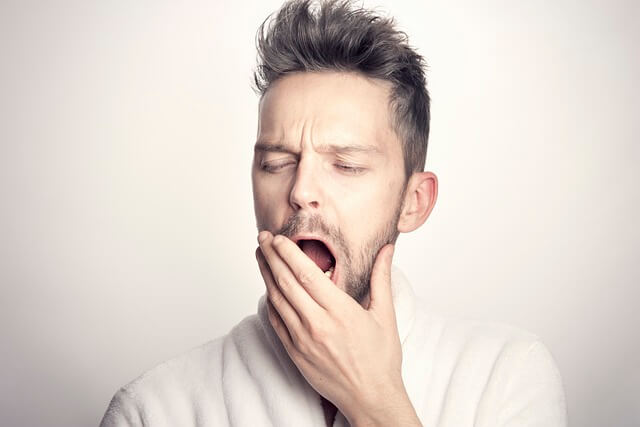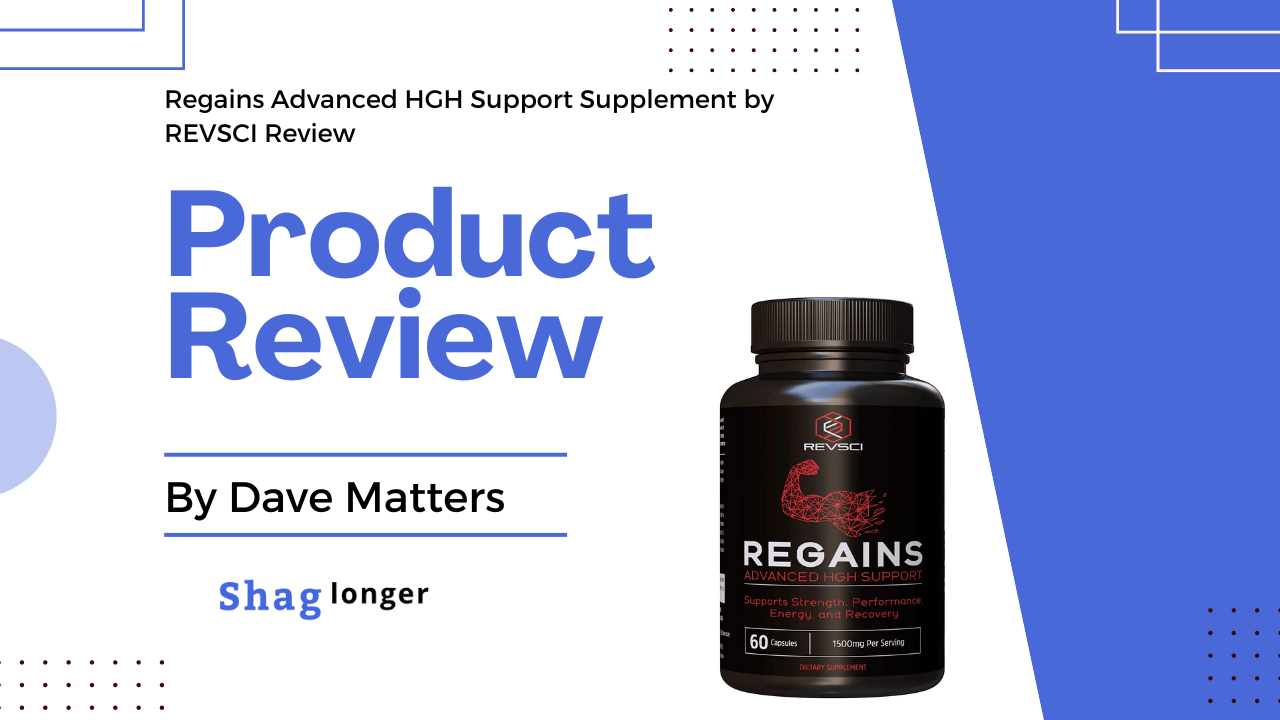Are you or someone you know struggling with premature ejaculation, depression, or both? If so, you’re not alone. These are both common conditions, but the relationship between the two can be a little tricky to understand.
But don’t worry, in this article ShagLonger will break it down for you. We will examine the ways in which premature ejaculation can contribute to the development of depression, as well as how pre-existing depression can exacerbate issues with premature ejaculation. It’s important to note that both of these conditions can have a significant impact on a person’s sex life as well as the overall, general quality of life.
Suppose you or someone you know is dealing with both premature ejaculation and depression. In that case, this article will provide valuable insight into the relationship between the two, and the importance of addressing both conditions to improve overall well-being. So let’s get into it, can depression cause premature ejaculation?


What causes premature ejaculation?
So, when it comes to the causes of premature ejaculation, there can be both physical and psychological factors at play.
Physical factors
Starting with the physical causes, there are a few things that can contribute to premature ejaculation (PE). One is a condition where the man’s ejaculatory reflex is overly sensitive, causing him to ejaculate too quickly during sexual activity.
Medical associations
Another physical cause can be an underlying medical condition, such as diabetes or multiple sclerosis, which can affect the nervous system and potentially cause premature ejaculation.
Erectile dysfunction
PE can often be linked to erectile dysfunction, which is another sexual dysfunction where a man can’t get or maintain an erection. Often this lack of sexual function can subconsciously make the brain want to end the experience as quickly as possible.
Psychological factors
So when it comes to PE, it’s not just physical factors that can play a role. There’s a whole mental component to it too. Anxiety, depression, stress, and performance anxiety can all be culprits.
It’s like when you have a big presentation at work or a big date, you might feel nervous and that nervousness can affect your sexual performance. And for some, that performance anxiety can lead to premature ejaculation.
And it’s not just about the present moment, past negative experiences can also play a role. If you had a bad experience in the past, it can make you anxious about the next time, which can lead to PE.
It’s worth noting that psychological causes of PE aren’t always easy to identify and can be unique to each individual. But understanding the psychological factors that may be contributing to premature ejaculation can be important in developing a treatment plan.
In the next section, we’ll take a closer look at one specific psychological cause of PE, which is depression, and how it may contribute to PE.
Effects of depression on sexual function
So when a person is feeling down and hopeless, it’s not just their emotions that get affected, it can also affect their sexual desire. They may lose interest in sex, have trouble getting or maintaining an erection, and even have a harder time reaching orgasm. All of these issues can contribute to premature ejaculation.
But how does depression specifically lead to premature ejaculation?
Well, there are a few theories floating around.
One is that depression alters the levels of certain neurotransmitters in the brain. These neurotransmitters, such as serotonin, play a crucial role in regulating sexual function, including ejaculation. So when the levels of these neurotransmitters are altered, it can lead to problems with ejaculation.
Another potential mechanism is that depression can lead to changes in the way the body responds to stress. When a person is depressed, they may be more sensitive to stress and more likely to experience anxiety, which can contribute to premature ejaculation.
Lastly, depression can also lead to self-esteem and self-worth issues, and it can affect a person’s sexual function. For example, if a person with depression feels like they’re not good enough or attractive, they may have negative thoughts and expectations during sexual activity, which can then lead to PE.
Studies on links between depression and premature ejaculation
A group of researchers did a study to see if there’s any truth to that. They looked at data from 8 different trials which included over 18,000 men and found out that, indeed, having depression increases your risk of having PE. And the weird thing is that it doesn’t matter how old you are, this risk remains the same.
Now, the study doesn’t completely explain how depression and PE are related, but from the results, it’s thought that depression may play a role in the development and maintenance of PE.
This study looked at the relationship between premature ejaculation and depression in a group of Korean men. The researchers used an internet survey to gather information from 956 men, asking them about their medical and sexual history and also using validated questionnaires to measure depression and PE.
They found that about 10.5% of the guys had PE according to a specific definition, and 25.4% according to self-assessment.
It turned out that the guys who self-reported as having PE had more psychological problems like depression, low self-esteem, and low sexual satisfaction compared to the other guys in the study. Even when they excluded guys with erectile dysfunction from the analysis, the connection between self-reported PE and depression still remained, which could mean that depression is a side effect of PE.
The conclusion is that men in Korea with subjective perceptions of PE are more prone to various psychological problems including depression.
Bottom Line
This means that if you’re dealing with both depression and PE, it’s really important to get professional help and address both conditions.
How to treat premature ejaculation and depression
While there are many options for treating both conditions individually, there are a few medications that help premature ejaculation and depression at the same time. Below are a few examples of how you can treat both conditions simultaneously:
Selective serotonin reuptake inhibitors (SSRIs)
These antidepressants are primarily used to treat depression, but they can also help with Premature ejaculation. They work by increasing the levels of serotonin in the brain which can improve mood and sexual function. Some examples of SSRIs that can help premature ejaculation are paroxetine, fluoxetine, and dapoxetine.
Tricyclic Antidepressants (TCAs)
These medications are similar to SSRIs in that they are mostly used to treat depression, but they can also be used to help treat PE. TCAs work by affecting the levels of neurotransmitters in the brain, which can improve mood and sexual function. Examples of TCAs include clomipramine (Anafranil) and imipramine (Tofranil).


Therapy
Therapy can be an effective treatment option for both depression and premature ejaculation because it addresses the underlying emotional and psychological factors that contribute to both conditions.
For PE, therapy can help an individual address any underlying anxiety or performance-related issues that may be contributing to the condition. This can include exploring past negative sexual experiences, negative beliefs about one’s sexual abilities, or low self-esteem. Through therapy, an individual can learn how to manage these emotions and develop healthier coping mechanisms that can improve sexual function.
Cognitive Behavioral Therapy (CBT) and sex therapy are the most common type of therapy that can be helpful for both Depression and PE. In CBT, the therapist will help the individual to change the way they think and act to overcome their emotional or behavioral problem. Sex therapy is focused on resolving sexual dysfunction and relationship issues through communication and problem-solving techniques.
It’s worth noting that not all therapy is the same, and it’s important to work with a therapist who has experience in treating both depression and PE, and who can create a treatment plan that addresses the unique needs and concerns of the individual.
Other medications for treating premature ejaculation
Topical sprays and numbing creams can help treat premature ejaculation by reducing sensation in the penis, which can delay ejaculation. These products typically contain a local anesthetic, such as lidocaine or benzocaine, which temporarily numbs the nerves in the penis.
When applied to the penis before sexual activity, these creams and sprays can help to reduce the sensitivity of the penis, which can delay ejaculation and help a person last longer during sexual activity. It’s worth noting that the effect of the cream or spray will only last for a short period of time, usually around 20-30 minutes.
It’s worth noting though, that these creams and sprays only address one symptom of PE. They’re not getting to the root of the problem, like anxiety or past negative experiences. And if you use them too much, you might find that sex isn’t as enjoyable since you’re not feeling as much. So, use them as directed and as a short-term solution.
Summary
Premature ejaculation and depression are both pretty common, and they can really mess with your sex life and overall well-being. It’s not always easy to understand how they’re connected, but they can definitely feed into each other.
On the physical side, things like hyperactive reflexes, medical conditions, and erectile dysfunction can contribute to premature ejaculation. But it’s not just physical, mental stuff like anxiety, depression, stress, and past negative experiences can also play a part.
Depression specifically can lead to premature ejaculation by messing with neurotransmitters in the brain and making it harder for your body to handle stress. It can also affect your self-esteem and self-worth which can make the problem worse.
The good news is that there are ways to address both premature ejaculation and depression. It’s important to see a healthcare professional for the right diagnosis and treatment. You can try therapy or medication and addressing both conditions can help you feel better overall.
So if you have any premature ejaculation or depression symptoms, seek help to not only improve your sexual health but your overall well-being.


And remember, you’re not alone in this. There’s always help available.












